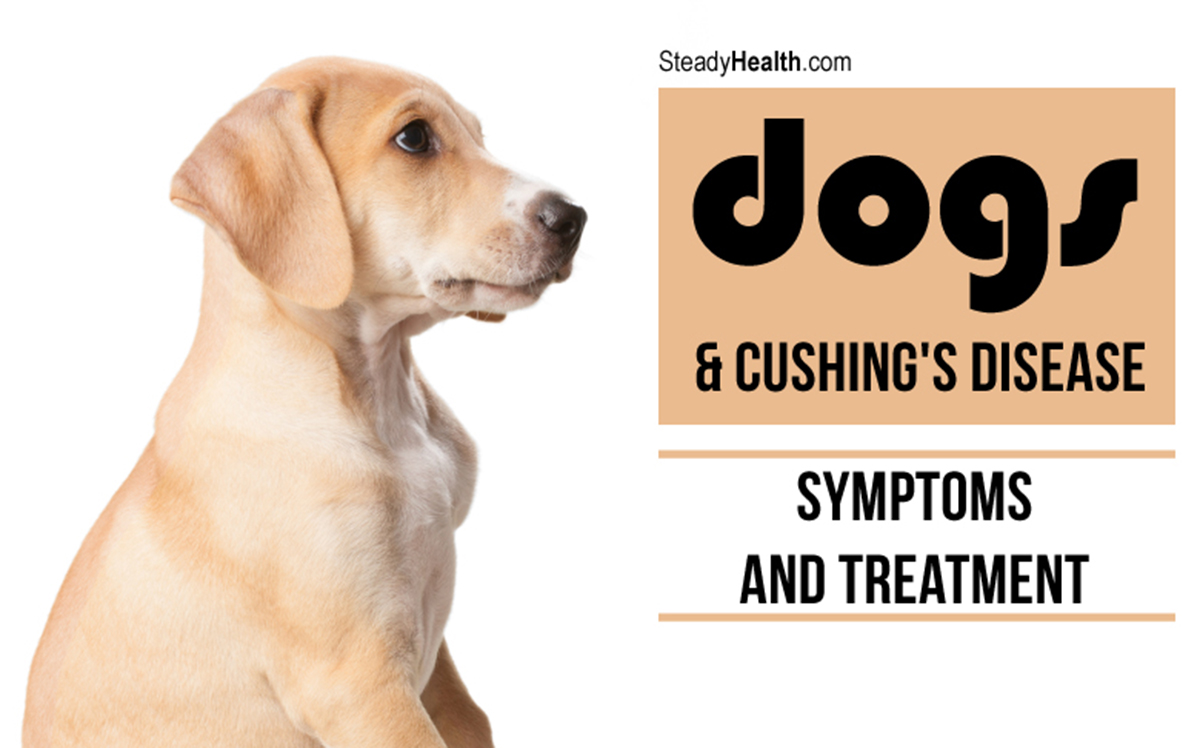When we bring a new puppy or an older dog into our home, we hope that our trusted canine will live a long and healthy life — we quickly grow attached, and the dog becomes nothing less than a family member. A four-legged friend who shows serious signs of illness is a real worry, and you'll want to help your dog feel better to the best of your ability.

What Is Cushing's Disease In Dogs?
Cushing's disease is a condition in which the pituitary gland, a small organ at the base of the brain, discharges an excess of adrenocorticotropic hormone (ACTH). This excess, in turn, causes the production of too much cortisol. As cortisol plays an important role in the way the body processes protein, fat, and carbohydrates, as well as altering the immune response to inflammation, you can imagine that the condition would lead to some rather unpleasant symptoms. Also called hypercortisolism, Cushing's disease is far from the exclusive domain of dogs — humans can get it too, though not as frequently. [1]
Canine Cushing's disease is typically caused by a benign tumor of the pituitary gland (known as pituitary-dependent Cushing's disease), but the condition can also be the result of a tumor of the adrenal gland (called adrenal dependent Cushing’s disease). [2]
Cushing's Disease In Dogs: Symptoms You Should Watch Out For
Cushing's disease usually affects middle-aged or geriatric dogs, who are already at the stage of life when their health is declining. This, in itself, may mean that it is hard for dog owners to spot the signs of Cushing's disease. Cushing's disease comes with some unusual symptoms that are hard to ignore and will let you know that something is wrong with your dog, however.
As a dog owner, you should look out for:
- Increased thirst: Your dog is drinking a lot more water than before. This also means they'll be wanting to relieve themselves much more often, and your dog will probably "bug" you for more frequent walks.
- Your dog's appetite will also increase, often resulting in a rotund, obese, dog.
- At the same time, your dog will be less active, resting more and just not having the energy they once did.
- Your dog's skin will be thinner and less healthy, prone to infections and the loss of a significant portion of their fur. Your dog will have a decidedly unwell look about them in time.
- Your dog will be panting more often. [3]
Cushing's disease sometimes "just happens", but some breeds — including the poodle, dachshund, beagle, boxer, and Boston terrier — are more likely to fall victim to Canine Cushing's disease. You will want to know that Cushing's disease in dogs can also be linked to the administration of the medications prednisone or dexamethasone for longer periods of time. [2]
I Think My Dog Could Have Cushing's Disease: What Now?
Symptoms like those of Cushing's disease clearly tell you that your dog is not well, and any time you are worried, a trip to the vet is warranted. Be aware that most dogs who are diagnosed with Cushing's disease do not live longer than two years from the time of diagnosis, with around 10 percent making it to four years. This is not necessarily because the disease itself kills, but because Cushing's disease is mainly diagnosed in dogs who are already of "grandpa age". [2]
The diagnosis of Cushing's disease in dogs is quite complex, and therewith also pricey. The diagnostic process may involve:
- A medical history, physical exam, and blood and urine tests to start off with.
- A complete white blood cell and platelet count test.
- A liver enzyme test.
- A blood sugar level test.
- An ACTH stimulation test.
- X-rays or ultrasound to try to locate the tumor. [4]
Cases of adrenal-dependent Cushing's disease in which the tumor has not spread can be treated surgically, thereby curing the dog of Cushing's disease completely. Most dogs will, instead, be prescribed medication for the rest of their lives, though. These prescription medications will usually consist of Vetoryl (trilostane), the only medication that was FDA-approved to treat both kinds of canine Cushing's disease. This medication cannot be given to all dogs; if your dog also suffers from kidney disease, for instance, they will need another medication.
Other drugs that may be used to managed Cushing's disease in dogs include:
- Anipryl (selegiline) for pituitary-dependent cases
- Lysodren (mitotane) as an off-label drug [3]
- Homeopathic medications have also shown some promise [5]
- Retionic acid [6]
A final word
Readers who have come here because their dog is displaying symptoms that could indicate Cushing's disease are advised to take their dog to the vet as soon as possible. In the case of dogs already diagnosed with canine Cushing's disease, you and your vet will have to work together to find the best possible treatment.
- Photo courtesy of SteadyHealth.com

